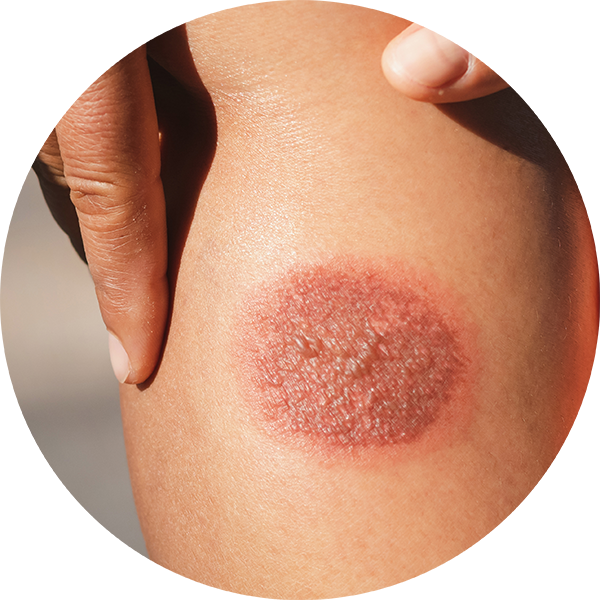
Psoriasis is a chronic autoimmune skin disorder that causes cells to build up rapidly on the surface of the skin, leading to thick, red, and often scaly patches. While Ayurveda doesn’t offer a cure for psoriasis, it provides holistic approaches to manage symptoms, reduce inflammation, and improve overall skin health. Here are some Ayurvedic recommendations for managing psoriasis:
- Diet and Lifestyle:
- Anti-Inflammatory Diet: Emphasize foods that have anti-inflammatory properties, such as fresh fruits, vegetables, whole grains, and lean proteins. Avoid processed foods, alcohol, and tobacco.
- Hydration: Drink plenty of warm water throughout the day to support detoxification and skin hydration.
- Regular Routine: Follow a consistent daily routine that includes proper sleep, meals, and relaxation.
- Herbal Remedies:
- Neem: Neem is known for its antibacterial and anti-inflammatory properties. Neem oil or neem-based creams can be applied topically.
- Turmeric: Curcumin, the active compound in turmeric, has anti-inflammatory effects. You can incorporate turmeric into your diet or use it as a topical paste.
- Aloe Vera: Applying aloe vera gel can help soothe itching and irritation.
- Topical Applications:
- Herbal Oils: Applying herbal oils like coconut oil, olive oil, or a combination of neem and turmeric oil can help moisturize the skin and reduce scaling.
- Natural Moisturizers: Avoid harsh chemical-based moisturizers and opt for natural products that are gentle on the skin.
- Ayurvedic Detox (Panchakarma):
- Virechana (Purgation): Under the guidance of an Ayurvedic practitioner, purgation therapy may be recommended to eliminate toxins from the body.
- Basti (Enema): Enema therapy can help balance Vata dosha and promote detoxification.
- Stress Management:
- Meditation and Yoga: Stress is a common trigger for psoriasis flare-ups. Engage in relaxation techniques, meditation, and gentle yoga to manage stress.
- Herbal Supplements:
- Triphala: Triphala, a combination of three fruits, is used for its detoxifying properties.
- Guggul: Guggul resin can be taken in supplement form to support skin health.
- Avoid Triggers:
- Identify and avoid triggers that exacerbate your psoriasis symptoms. These could include stress, certain foods, and harsh skincare products.
It’s important to consult with a qualified Ayurvedic practitioner before starting any treatments, as they can tailor a plan based on your individual constitution and the severity of your psoriasis. Additionally, keep your healthcare provider informed about any complementary treatments you’re considering, especially if you’re using other medical treatments for psoriasis.
